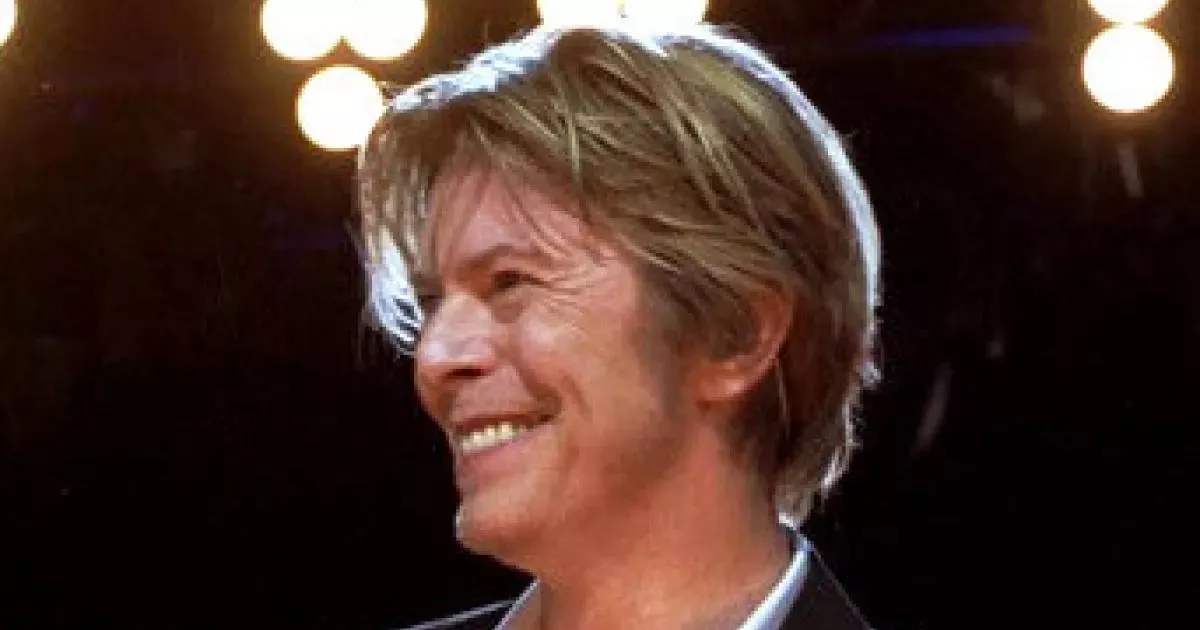An overview of the childhood and early education of David Bowie, highlighting the experiences that shaped the journey.
David Bowie (David Robert Jones) was a highly influential English singer-songwriter and actor, celebrated for his innovation and impact on popular music, especially during the 1970s. His career, spanning five decades, was characterized by constant reinvention and striking visual presentation. Bowie remains a critically acclaimed and influential figure in music history.
January 1947: David Bowie's Birth
David Robert Jones, who later became known as David Bowie, was born in January 1947. He would become a very influential English singer, songwriter, and actor.
1953: Family Move to Bickley
In 1953, David Bowie and his family moved to Bickley.
1955: Family Settles in Sundridge Park
In 1955, David Bowie and his family settled in Sundridge Park where he attended Burnt Ash Junior School.
1956: First Impression of Elvis Presley
In 1956, David Bowie was first impressed with Elvis Presley when he saw his cousin Kristina dance to "Hound Dog".
1958: Attendance at Bromley Technical High School
In 1958, David Bowie started attending Bromley Technical High School.
1961: Gift of a Grafton Saxophone
In 1961, David Bowie's mother gave him a Grafton saxophone after he showed enthusiasm for jazz players. He began receiving lessons from Ronnie Ross.
1963: Professional Music Career Start
In 1963, David Bowie began his professional music career after studying art, music and design.
November 1964: Bowie speaks out against prejudice
In November 1964, during his first television interview, David Bowie, then known as Davie Jones, spoke out against prejudice against men with long hair after he and his band, the Manish Boys, were asked to cut their hair before a BBC television appearance.
1967: Bowie's Interest in Buddhism
In 1967, influenced by his half-brother, David Bowie became interested in Buddhism and considered becoming a monk after struggling to achieve commercial success. He studied at Tibet House in London for a few months.
April 1969: Meeting Angela Barnett
In April 1969, David Bowie met Angela Barnett, whom he would marry within a year.
1969: David and Angie create bisexual fantasy
In 1969, according to Mary Finnigan, David Bowie and his then-girlfriend Angie created what she described as their "bisexual fantasy".
1971: Bowie's First Trip to the US
The movie "Stardust" follows Bowie on his first trip to the United States in 1971.
1972: Bowie declares himself gay
In a 1972 interview with Melody Maker, David Bowie declared himself gay. This statement generated significant publicity in both Britain and America, leading to Bowie being adopted as a gay icon in both countries.
July 1973: Ziggy Stardust's Retirement
On July 3, 1973, David Bowie dramatically retired the Ziggy Stardust persona on stage at London's Hammersmith Odeon.
1975: Bowie admits feeling alone
In 1975, David Bowie admitted, "I felt totally, absolutely alone. And I probably was alone because I pretty much had abandoned God."
1975: Severance settlement with Defries ended
In September 1982, David Bowie's 1975 severance settlement with Tony Defries ended.
August 1976: Move to West Berlin
In August 1976, David Bowie moved to West Berlin with Iggy Pop to overcome their drug addictions and escape the spotlight.
1976: Political controversy during the Isolar Tour
In 1976, David Bowie's Isolar tour became mired in political controversy, including alleged pro-fascist comments in Stockholm and a possible Nazi salute at Victoria Station in London. These incidents, along with Eric Clapton's racist comments, led to the establishment of Rock Against Racism.
1976: Bowie affirms bisexuality
In a 1976 interview with Playboy, David Bowie affirmed his bisexuality, stating, "It's true—I am a bisexual. But I can't deny that I've used that fact very well. I suppose it's the best thing that ever happened to me."
1980: Divorce from Angie
In early 1980, David Bowie's marriage with Angie ended after months of court battles, following divorce proceedings initiated towards the end of 1979.
1983: Bowie criticizes MTV for lack of Black musicians
In 1983, David Bowie criticized MTV for not providing enough coverage of Black musicians, expressing discomfort when a network representative suggested fear of backlash from the American Midwest as a reason.
1983: Bowie calls bisexuality declaration a mistake
In 1983, David Bowie told Rolling Stone that his public declaration of bisexuality was "the biggest mistake I ever made" and claimed he was "always a closet heterosexual".
October 1990: Meeting Iman
In October 1990, David Bowie met Somali-born supermodel Iman through a mutual friend, and they immediately felt a strong connection.
April 1992: Freddie Mercury Tribute Concert and Marriage
On April 20, 1992, David Bowie performed at The Freddie Mercury Tribute Concert, singing "'Heroes'", "All the Young Dudes", and "Under Pressure" with Annie Lennox. On April 24, 1992, Bowie and Iman married in Switzerland.
1992: Marriage to Iman and Dissolution of Tin Machine
In 1992, David Bowie and Iman married. The live album Tin Machine Live: Oy Vey, Baby failed commercially, leading Bowie to dissolve the band and resume his solo career.
1992: Marriage to Iman
In 1992, after marrying Iman in a private ceremony, David Bowie stated that their "real marriage, sanctified by God, had to happen in a church in Florence".
1993: Bowie expresses belief in God and discusses music
In 1993, David Bowie expressed an "undying" belief in the "unquestionable" existence of God. In a separate interview in 1993, he discussed the genesis of his album Black Tie White Noise, stating his desire to find music without ties to institutionalized religion.
January 1997: 50th Birthday Concert
On January 7, 1997, David Bowie celebrated his 50th birthday with a concert at Madison Square Garden, joined by Lou Reed, Dave Grohl and the Foo Fighters, Robert Smith of the Cure, Billy Corgan of the Smashing Pumpkins, Black Francis of the Pixies, and Sonic Youth.
February 1997: Hollywood Walk of Fame Star
On February 12, 1997, David Bowie received a star on the Hollywood Walk of Fame.
2002: Bowie reflects on bisexuality declaration
In 2002, Blender asked David Bowie if he still considered his bisexuality declaration his biggest mistake. Bowie responded that it wasn't a mistake in Europe but was tougher in America, as it hindered his desire to be a songwriter and performer rather than a headline.
2003: Turned down a knighthood
In 2003, David Bowie turned down a knighthood, stating that he did not understand what it was for and it was not what he had spent his life working for.
2005: Bowie discusses atheism
Interviewed in 2005, David Bowie said that whether God exists "is not a question that can be answered... I'm not quite an atheist and it worries me. There's that little bit that holds on: 'Well, I'm almost an atheist. Give me a couple of months... I've nearly got it right.'"
February 2006: Grammy Lifetime Achievement Award
On February 8, 2006, David Bowie was awarded the Grammy Lifetime Achievement Award.
2007: Bowie donates to Jena Six defense fund
In 2007, David Bowie donated $10,000 to the defense fund for the Jena Six, stating, "there is clearly a separate and unequal judicial process going on in the town of Jena".
2013: David Bowie Is exhibition opens in London
In 2013, the David Bowie Is exhibition, organized by the Victoria and Albert Museum, opened in London. The exhibition was highly successful, attracting over 300,000 visitors.
2014: Bowie references Scottish independence referendum
At the 2014 Brit Awards, when David Bowie won British Male Solo Artist, he referenced the upcoming Scottish independence referendum, saying, "Scotland, stay with us."
January 2016: David Bowie's Death
David Bowie died in January 2016, marking the end of a 50-year career marked by reinvention.
2016: Death from Liver Cancer and Release of "Blackstar"
In 2016, David Bowie died from liver cancer, two days after both his 69th birthday and the release of his final album, 'Blackstar'.
2018: End of David Bowie Is World Tour
In 2018, the David Bowie Is exhibition concluded its world tour at the Brooklyn Museum. The exhibition had around 2,000,000 visitors during its run.
January 2019: Stardust biopic announced
On January 31, 2019, the announcement of the biopic "Stardust" was made, starring Johnny Flynn as David Bowie, Jena Malone as Angie Bowie, and Marc Maron as Bowie's publicist.
2020: Stardust release is postponed
The premiere of Stardust was scheduled for the 2020 Tribeca Film Festival, but was postponed due to the COVID-19 pandemic.
May 2022: Announcement of Moonage Daydream film
On May 23, 2022, the announcement was made of the film "Moonage Daydream", a documentary on David Bowie's musical journey, written and directed by Brett Morgen, featuring never-before-seen footage, performances, and music framed by Bowie's own narration.
Mentioned in this timeline
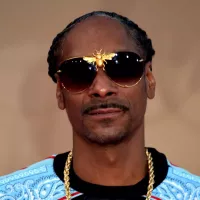
Calvin Cordozar Broadus Jr professionally known as Snoop Dogg is...
Home Box Office HBO is an American pay television service...
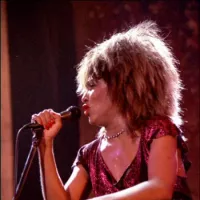
Tina Turner the Queen of Rock 'n' Roll was a...
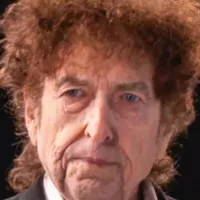
Bob Dylan is a highly influential American singer-songwriter renowned as...

Elvis Presley the King of Rock and Roll was a...
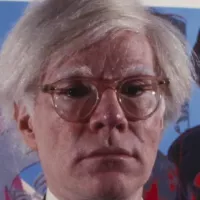
Andy Warhol - was a pivotal American artist film director...
Trending
58 minutes ago La Salle faces Davidson; Dockery shines with 25 points in prior game.
2 hours ago Tom Cotton discusses potential US strikes and Iran on Face the Nation.

2 hours ago Sydney Sweeney Showcases Football Skills, Compared to Bruno Fernandes and Ronaldo

2 hours ago Benjamin Sesko aims to start for Man Utd against Crystal Palace.

2 hours ago Manchester United vs Crystal Palace; Guardiola Condemns Ramadan Booing at Leeds-Man City Match
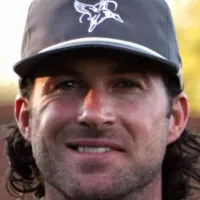
2 hours ago Riley Green chooses farm life, teases fans with Carly Pearce on new song.
Popular

Jesse Jackson is an American civil rights activist politician and...

Hillary Diane Rodham Clinton is a prominent American politician lawyer...

XXXTentacion born Jahseh Dwayne Ricardo Onfroy was a controversial yet...

Kashyap Pramod Patel is an American lawyer who became the...

Michael Joseph Jackson the King of Pop was a highly...

Barack Obama the th U S President - was the...
